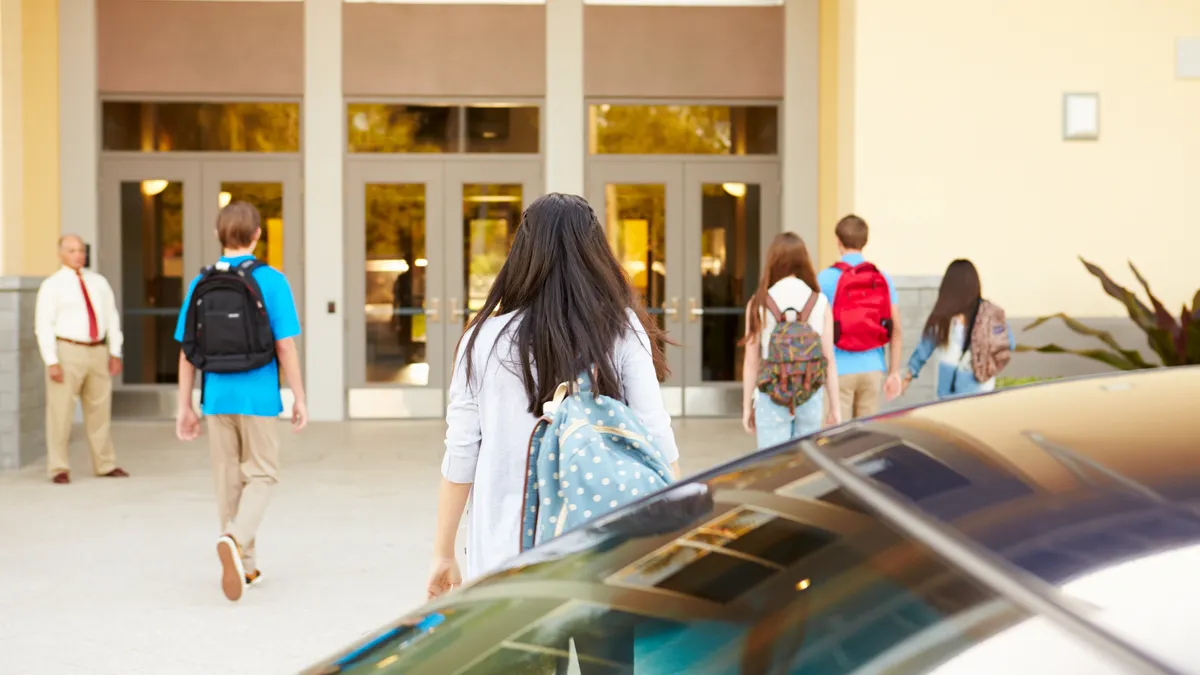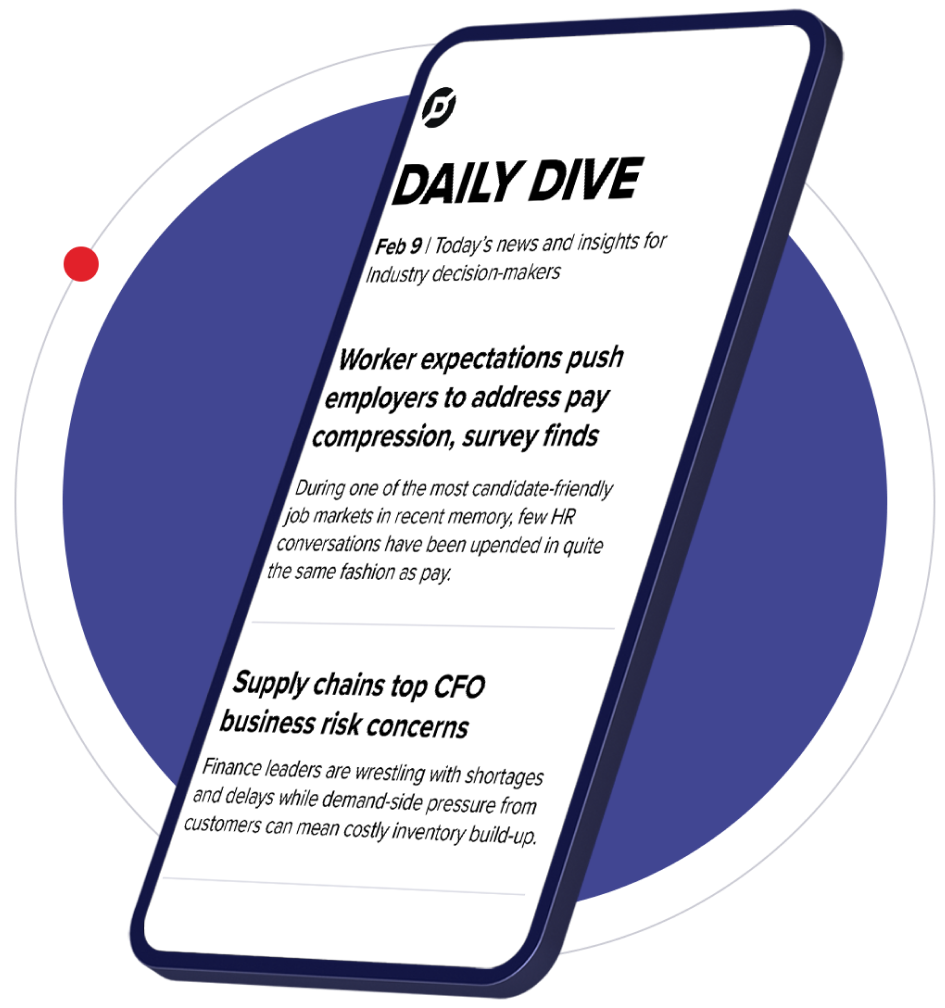Curriculum: Page 60
-
Weaving art into STEM benefits more creative students
STEAM lessons lean more toward hands-on learning, so students spend less time in lecture-styled settings and more on their own or with classmates.
By Lauren Barack • Nov. 28, 2018 -
Deep Dive
Modern approaches to sex ed expand topics, concerns and tools for students
Health and human sexuality courses must cover bases ranging from consent to social media's impact on body image.
By Lauren Barack • Nov. 28, 2018 -
 Explore the Trendline➔
Explore the Trendline➔
 Stock Photo via Getty Images
Stock Photo via Getty Images Trendline
TrendlineTop 5 stories from K-12 Dive
K-12 Dive has gathered some a selection of our best coverage from 2025 so far as a one-stop resource on the trends to watch in the months ahead.
By K-12 Dive staff -
Opinion
4 ways to teach empathy in the classroom
Empathy can be thought of as a "superpower" students as young as 3rd grade can learn and develop, writes Roberta Brandao of New Jersey's Solomon Schechter Day School of Bergen County.
By Roberta Brandao • Nov. 27, 2018 -
AP credits offer multiple benefits once students reach college
Pell Grant recipients with AP credits are more likely to earn their degrees in a shorter length of time.
By Linda Jacobson • Nov. 26, 2018 -
Doctor, architect or magician: Student internships help high-schoolers begin finding their passion
The ideal internships tap into any interest a student wants to pursue, illuminating possible career paths.
By Lauren Barack • Nov. 21, 2018 -
Kindergarten at center of homework debate
Some schools make homework mandatory for kindergartners, while others cite research showing it doesn’t necessarily make students better learners.
By Lauren Barack • Nov. 21, 2018 -
Makerspaces: A Petri dish for experimentation
Maker education encourages students to tap into their ideas and experiences as they solve problems and develop solutions on their own.
By Lauren Barack • Nov. 21, 2018 -
Schools must ensure tech meets needs across range of disabilities
Schools and districts can leverage their buying power to insist that vendors design all products to meet requirements across a spectrum of student needs.
By Lauren Barack • Nov. 21, 2018 -
Despite accountability pressure, core subjects shouldn't be sacrificed for test prep
A former Camden City School District superintendent says while test prep can help students get better scores, it hasn't aided them in grasping concepts.
By Lauren Barack • Nov. 21, 2018 -
Opinion
How a Title I school raised its science passing rate 24 points
Now when we say, “It’s time for science,” not one student groans.
By Robin Butcher and Karen Silensky • Nov. 21, 2018 -
Philadelphia schools adopt outdoor education as a graduation strategy
This year, 1,400 freshman are participating in Outward Bound activities, and the district plans to expand the program to include nearly all 9th graders in the 2019-20 school year.
By Lucy Hood • Nov. 15, 2018 -
Experts stress project-based learning for all-day kindergarten
At the annual National Association for the Education of Young Children conference, one professor panelist said all-day kindergarten combined with PBL "marry to become reciprocally supportive of each other.”
By Jessica Campisi • Nov. 15, 2018 -
Mind, brain and education PD app gets $1M boost from Chan Zuckerberg Initiative
Called Neuroteach Global, the program will be available to 1,500 teachers in three districts.
By Linda Jacobson • Nov. 14, 2018 -
Deep Dive
Tech implementation must start with educators to maximize safe, ethical use
Short, online courses can give educators the professional development, training and support they need to effectively teach their students.
By Lauren Barack • Nov. 14, 2018 -
Schoolwide literacy programs need buy-in
Effectively weaving literacy across the entire curriculum requires everyone’s involvement.
By Lauren Barack • Nov. 14, 2018 -
Debate helps students rise above the political heat
Bringing debate skills into political discussions could help students have more thoughtful, even-handed conversations.
By Lauren Barack • Nov. 14, 2018 -
Are student interviews a better assessment of progress than standardized tests?
A qualitative approach may paint a broader picture of what students are actually learning than quantitative exams.
By Lauren Barack • Nov. 14, 2018 -
Discovery can be the best motivator for learning
Successful blended learning programs challenge assumptions and require students and teachers to work in partnership.
By Lauren Barack • Nov. 14, 2018 -
Deep Dive
Personalized learning remains a hot topic, but what does the groundwork look like?
As a buzzword, personalization has become ubiquitous at ed conferences, but schools are taking a variety of steps to give students greater ownership of their learning.
By Daschell Phillips • Nov. 12, 2018 -
Column
Pre-to-3: Researchers find more reasons why the arts are good for young children
Early exposure to the arts is important, researchers say — and may be especially critical for children with the greatest needs — because participation has been associated with higher achievement in school.
By Linda Jacobson • Nov. 9, 2018 -
SEL Assessment Guide a one-stop shop for real-world examples of how progress is being measured
The guide from the Collaborative for Academic, Social and Emotional Learning includes an assessment catalog and details on how educators are using data.
By Lucy Hood • Nov. 9, 2018 -
The question isn't 'how much' homework — it's 'why'
Rather than using a quantitative metric to find the right balance, educators should consider what outcome is desired.
By Lauren Barack • Nov. 7, 2018 -
Reflection, advisory time can lead to better grades
Working advisory time into the school day can encourage students to adopt a more positive mindset about schoolwork and their futures.
By Lauren Barack • Nov. 7, 2018 -
Trading in memorization for retrieval exercises can help quash students' internalized failure
Instead of relying on rote memorization, a veteran teacher suggests that emphasizing new learning methods can drive higher student performance.
By Lauren Barack • Nov. 7, 2018 -
Appreciating students' differences boosts classroom success, says school leader
Universal design for learning starts with recognizing students are unique and that these differences are normal, an assistant superintendent says.
By Lauren Barack • Nov. 7, 2018

